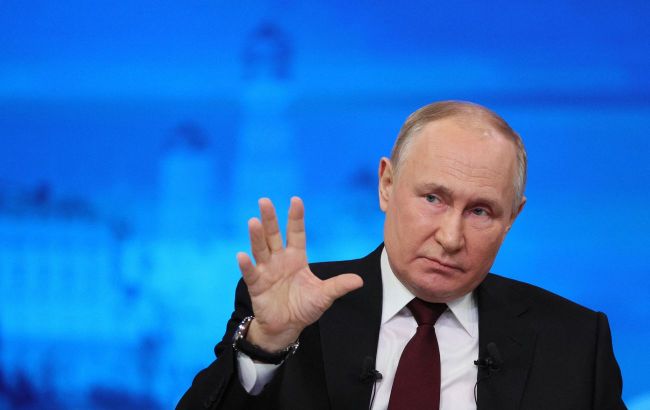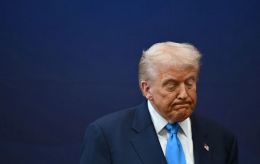Project Putin wanted to use to undermine dollar being shut down - Bloomberg
 Photo: the project that Putin intended to use to undermine the dollar is being shut down (Getty Images)
Photo: the project that Putin intended to use to undermine the dollar is being shut down (Getty Images)
The Bank for International Settlements (BIS) is discussing the possibility of shutting down its pilot platform for cross-border payments. Vladimir Putin has identified the underlying technology as a tool for circumventing sanctions and potentially undermining the dominance of the dollar in the global financial system, Bloomberg reports.
The mBridge project, which promises to enable global money transfers without relying on US banks, was among the topics discussed by central banks and financial executives last week at the annual meetings of the International Monetary Fund and the World Bank in Washington. According to sources familiar with the talks, shutting down the project was one of the options considered.
Agustín Carstens, general manager of the BIS, whose term ends in June, stated at a Group of 30 event in the US capital that "we cannot directly support any project for the BRICS because we cannot operate with countries that are subject to sanctions — I want to be very clear about that."
The US has increasingly leveraged the dollar's role as a key channel for global financial transactions to implement international sanctions, particularly following Russia's invasion of Ukraine. This has prompted efforts to seek alternatives that would be insulated from US interference, even though the dollar remains the primary currency for international trade and there are few signs that this will change in the near future.
This has not deterred countries like China and Russia from making attempts. The mBridge project promises to enable global money transfers outside the current correspondent banking system, which heavily relies on the dollar and is thus potentially a target for US sanctions. Instead, it establishes direct digital links between the central banks of participating countries.
Initially, the platform was developed by the central banks of China, Thailand, Hong Kong, and the United Arab Emirates as part of the BIS Innovation Hub and has recently reached the "minimum viable product" stage, indicating that it is ready for real-world deployment. Earlier this year, the BIS invited private creditors and other financial institutions to join and carry out actual transactions.
Concerns among Western policymakers are heightened by the fact that China supplies the key technological foundation for the platform.
According to one senior official, allowing China to take the lead in developing such a sensitive project was a mistake. Other officials confirmed discussions, emphasizing the importance of carefully selecting the countries permitted to spearhead changes in the global financial infrastructure.
BRICS Bridge
At the BRICS summit last week in Kazan, Russia, Putin proposed the creation of a BRICS Bridge based on technology comparable to mBridge. This would allow their economies to become independent from the US-controlled financial system, he claimed.
Putin's statement has prompted officials to quickly reassess the entire initiative. However, it remains unclear whether the BIS's potential closure of the mBridge project would actually prevent the participating central banks from utilizing the technology. Some countries may choose to continue working even without the Basel-based institution, according to a source familiar with the project.
At the same time, while the establishment of the BRICS Bridge architecture may be technically feasible, Putin's plan could face resistance from other group members who are not under US sanctions.
Although many participants advocate for the broader use of national currencies in bilateral trade, countries like India, South Africa, and the UAE are reluctant to undermine the current dollar-based financial system. In the communiqué from last week's BRICS summit, the group expressed concern about the negative impact of "unlawful" sanctions on the global economy and called for reforms of the IMF and the World Bank but refrained from mentioning the BRICS Bridge.
"At this stage, it is hard to imagine a widespread development and adoption of BRICS financial tools globally," said Agathe Demarais, senior policy fellow at the European Council of Foreign Relations. "In the long run, there is no doubt that mechanisms like BRICS Bridge could be useful for China, Russia or others to hide sensitive transactions from western authorities."
According to a study by the Atlantic Council’s GeoEconomics Center, nothing threatens the dollar's role as the primary global reserve currency. The so-called BRICS countries have failed to diminish the global role of the dollar.
The dollar continues to dominate in foreign reserves, trade accounts, and currency transactions worldwide. Currently, 58% of global foreign reserves are denominated in dollars. Moreover, the dollar accounts for 54% of export transactions and 88% of currency exchange transactions.

